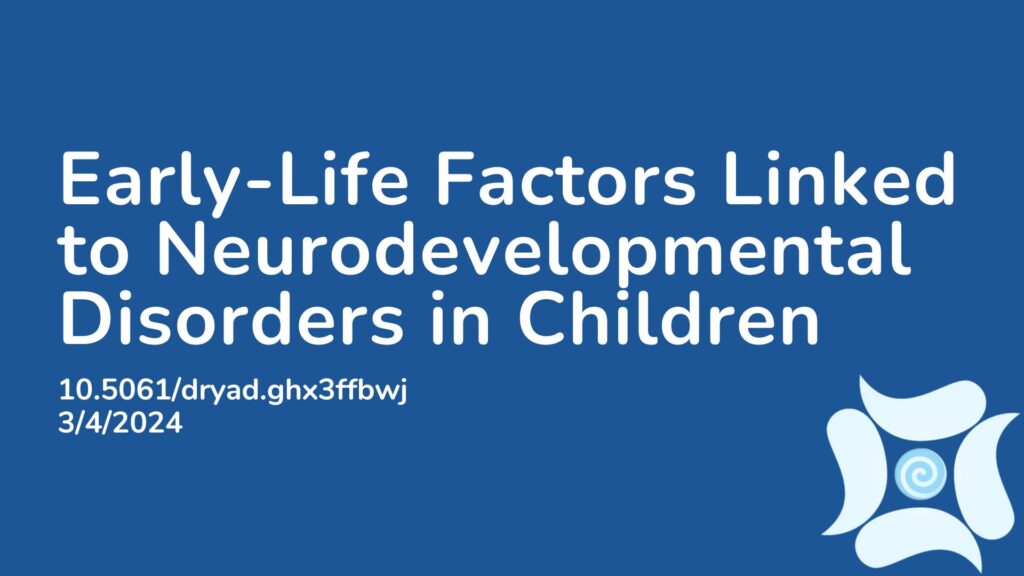Summary:
Neurodevelopmental disorders (NDs) such as autism spectrum disorder (ASD), attention-deficit/hyperactivity disorder (ADHD), intellectual disabilities, and communication disorders significantly impact the central nervous system, often emerging in childhood. These disorders result from a complex interplay of prenatal factors, genetic and environmental influences disrupting neuronal function, immune regulation, and causing inflammation. Many individuals with ASD also experience gastrointestinal symptoms, suggesting a gut-brain link. The gut microbiota affect metabolism, gastrointestinal and neurological health, and immune function, potentially influencing NDs through pathways like the vagus nerve and biochemical transport. Despite these insights, the exact role of the microbiome in ND pathophysiology remains unclear, prompting this study to investigate early-life factors, health records, and microbiome patterns associated with ND risk. Early-life questionnaires recorded infection and antibiotic exposure, prenatal conditions, family history, and more. Biomarkers including cord serum, human leukocyte antigen (HLA) genotype, infant microbiota, and stool metabolome were analyzed. Among the 16,440 children followed over time, 1,197 were diagnosed with an ND. Significant associations were found for overall ND risk and specific types such as intellectual disability, speech disorders, ADHD, and autism. These NDs were linked with metabolic factors, immune system dysregulation, stress, early-life infections, and antibiotic use. The results also suggested that these associations could be mediated by the microbiome.
Abstract:
This study has followed a birth cohort for over 20 years to find factors associated with neurodevelopmental disorder (ND) diagnosis. Detailed, early-life longitudinal questionnaires captured infection and antibiotic events, stress, prenatal factors, family history, and more. Biomarkers including cord serum metabolome and lipidome, human leukocyte antigen (HLA) genotype, infant microbiota, and stool metabolome were assessed. Among the 16,440 Swedish children followed across time, 1,197 developed an ND. Significant associations emerged for future ND diagnosis in general and for specific ND subtypes, spanning intellectual disability, speech disorder, attention-deficit/hyperactivity disorder, and autism. This investigation revealed microbiome connections to future diagnosis as well as early emerging mood and gastrointestinal problems. The findings suggest links to immunodysregulation and metabolism, compounded by stress, early-life infection, and antibiotics. The convergence of infant biomarkers and risk factors in this prospective, longitudinal study on a large-scale population establishes a foundation for early-life prediction and intervention in neurodevelopment.
Article Publication Date: 3/4/2024
DOI: 10.5061/dryad.ghx3ffbwj



